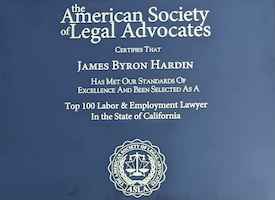Understanding Employee Retaliation Claims in California
California employment law provides robust protections for employees against discrimination, harassment, unlawful termination, and more. Importantly, the law also shields employees from retaliation when they raise complaints, attempt to resolve issues, or take other actions in response to workplace problems. Recently, a California Court of Appeal opinion clarified what is required for an employee’s retaliation claim to proceed to trial.
The Facts of the Case
In the case in question, an employee sued her former employer for retaliation under the Federal Employment and Housing Act (FEHA) and relevant sections of the Labor Code. The employee had raised complaints about a hostile work environment, harassment, and retaliation, which she intended to investigate. However, her employer terminated her employment, and she claimed this was in retaliation for her complaints.
The trial court granted summary judgment in favor of the employer, meaning the court decided the case without a full trial. The court ruled there were no significant factual disputes requiring a trial, and the employer was entitled to judgment as a matter of law. The employee appealed this decision to a higher court, seeking a review of the lower court’s ruling.
The Appellate Decision
The appellate court’s task was to determine whether the summary judgment granted by the lower court was appropriate. In California employment law cases, a court will grant summary when it finds no genuine issues of material fact it must resolve. Essentially, this means that viewing the evidence in the most favorable light to the non-moving party (in this case, the employee), the moving party (the employer) would win the case.
The appellate court reviewed the evidence and concluded that there were indeed triable issues of material fact regarding the employee’s retaliation claim. The evidence suggested that the employee’s termination could have been motivated by retaliatory animus, especially given the timing and circumstances of her firing. As a result, the appellate court reversed the lower court’s summary judgment ruling. This means the employee’s retaliation claim will now return to the trial level. There, she may have the opportunity to present her case and potentially receive compensation.
Finding Help Navigating Complex Employment Law Claims
Employment law claims in California can be procedurally complex. The best chance of success often comes when the issues are first heard by a trial court. While appellate reversals are possible, the increased time and expense of an appeal can be burdensome. Thus, having experienced legal representation from the outset is crucial to navigating these complexities effectively. If you believe you have an employment law issue in California, it is essential to seek experienced legal counsel. The attorneys at Hardin Law Group have decades of experience handling complex employment cases. They understand the intricacies of California employment law and are dedicated to advocating for employees’ rights. Often, they can reach a favorable judgment or settlement without proceeding to trial. Contact Hardin Law Group for a consultation to discuss your case. Call us at (949) 337-4810 or use our online form to schedule a free consultation today. Don’t navigate the complexities of employment law alone—reach out to Hardin Law Group today.





















